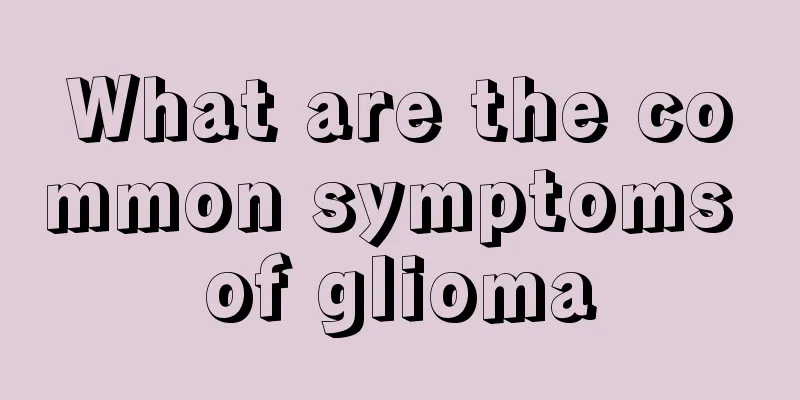What are the common symptoms of glioma

|
If a person has a problem with his brain, he will have various different behaviors and actions from ordinary people. However, problems inside brain cells will seriously affect a person's health. Glioma is a disease that often occurs in the brain, which is what we call brain tumor. Let's take a look at the common symptoms of glioma. Local symptoms will occur according to the location of the tumor, and will progressively worsen. Especially for malignant gliomas, which grow faster, infiltrate and destroy brain tissue, and cause significant surrounding brain edema, local symptoms are more obvious and develop faster. Intraventricular tumors or tumors located in the quiet area may have no local symptoms in the early stages. Tumors in important functional areas such as the brainstem will show local symptoms in the early stages, and symptoms of increased intracranial pressure will not appear until a considerable period of time. Some tumors that develop more slowly often do not show symptoms of increased intracranial pressure until the late stages due to compensatory effects. Symptoms mainly manifest in two aspects. One is increased intracranial pressure and other general symptoms, such as headache, vomiting, vision loss, diplopia, epileptic seizures and mental symptoms. The other is local symptoms caused by the compression, infiltration and destruction of brain tissue by the tumor, resulting in neurological dysfunction. Increased intracranial pressure can cause papilledema, which in turn can lead to secondary atrophy of the optic nerve and decreased vision. Tumors compressing the optic nerve can cause primary optic atrophy, which can also lead to decreased vision. The abducens nerve is easily compressed and pulled, often causing paralysis and double vision. After the brain tissue is compressed, some tumor patients will have epilepsy symptoms, which may be early symptoms. Epilepsy that begins in adulthood is generally symptomatic, mostly caused by brain tumors. Those who are difficult to control with drugs or whose seizures have changed in nature should consider the presence of brain tumors. Those whose tumors are adjacent to the cortex are prone to epilepsy, while those with deep tumors are rare. Localized epilepsy has localization significance. |
<<: What are the main symptoms of glioma
>>: What are the specific complications of glioma
Recommend
What is the diet to prevent prostate cancer?
Diet plays a certain role in the prevention of pr...
What medicine should I take for lumbar compression of nerves
Lumbar disc herniation is very harmful to human h...
The correct measures should be taken to care for patients with gallbladder cancer
Among cancer diseases, gallbladder cancer is a re...
Only when we know the cause of cervical cancer can we prevent the disease
Cervical cancer has long been a disease that has ...
Early diagnosis method of breast cancer
Early cancers in pathological histology include d...
Can I donate blood if I have a thyroid nodule?
Donating blood can be said to be a very good soci...
The reason why pancreatic cancer is painless in the late stage
Malignant tumors are becoming more and more commo...
What harm does boiling garlic in water have on children
Boiled garlic in water has a certain effect in tr...
Do patients with endometrial cancer need reexamination after treatment?
Do patients with endometrial cancer need follow-u...
What is the reason for swollen fingers? Pay attention to swelling in the hands when you wake up early
Many people have swollen hands when they wake up ...
Look at the pictures of tongue cancer to enhance prevention awareness
In real life, the number of people suffering from...
Blisters on the child's legs
When summer comes, children often develop blister...
Can taking calcium tablets help you grow taller at the age of 22
I believe everyone wants to be taller, which make...
Can you sleep? 9 bedtime habits that affect sleep quality
Most people experience some type of sleep problem...
How to use a thermometer
Everyone should be familiar with thermometers. We...









